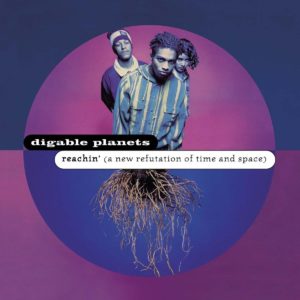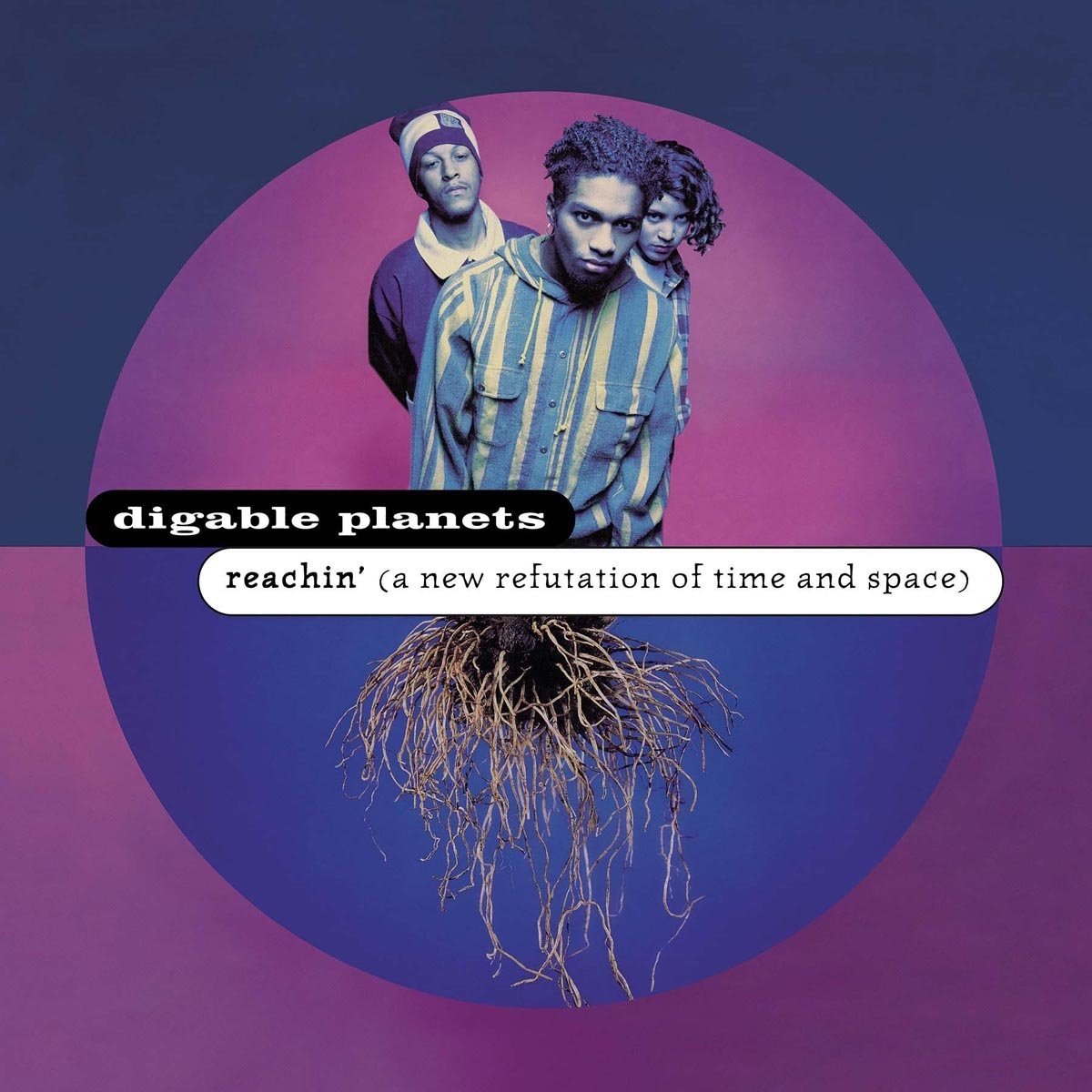Digable Planets
Reachin’ (A New Refutation Of Time And Space) [reissue]
LIGHT IN THE ATTIC
9/10
There are certain albums that are intimidating to critique. Digable Planets’ Reachin’ is one of them, such was the poetry and grace of the concise body of work put together by Ishmael “Butterfly” Butler, Mary-Ann “Ladybug Mecca” Vieira, and Craig “Doodlebug” Irving in 1993.
Lots has already been written about the album; for example, Reachin’ as a product of the group’s formation, or the deluge of jazz samples (most taken from Ishmael’s father’s jazz collection) that made the album sound mystical. But even today, commentary on the album often overlooks just how straight-up good it is. Reachin’ is intellectual, poignant, and meaningful, but it also swings with a relatively sparse (even minimal, if compared to current production values) soundboard underpinning it.
So what’s the secret? Well, actually, it’s the lyrics. No, it’s more than that—it’s the words themselves. Not just the couplets, but the way individual words are bolted together. As the menacing space oscillations of opener “It’s Good to Be Here” break into the cheery rap of “The ticky ticky buzz, the sun wakes the sky,” expectations are twisted and the album seamlessly moves between youthful vigour and beyond-years wisdom.
With twenty-five years of hindsight, part of the ongoing appeal is how Reachin’ manages to feel increasingly optimistic, perhaps an unintended consequence of darkening times. This isn’t to say the album lacks vulnerability or uncertainty—far from it—and maybe the dignified intellectualism keeps it seeming bright; however, tragedies ebb throughout. The menace in the slowed-down Hamilton Bohannon sample on “Pacifics” adds to the chaotic mindset of city life, and the humbling treatment of abortion in “La Femme Fétal” is a perfect expression of tenderness, with its beatnik feminism and smoky noir organ chords.
Whatever the tone, Reachin’ forces a smile on the listener, and the New-York–via-Mars depicted is a palette of pastel greys and huge bleached-blue skies. “Where I’m From” is mellow poetry, proudly regaling the listener with staccato, bookish rhythms: “We be reading Marx where I’m from / The kids be rocking Clarks where I’m from / You turn around your cap, you talk over a beat / And dig some sounds, booming out a Jeep.”
But there’s also a playfulness peppered across Reachin’. “Jimmi Diggin Cats” set-dresses the ’90s with the ’60s; it presents an alternate universe in which Hendrix digs the trio, the Black Panthers have a cartoon, and MC Hammer’s a pimp. It’s the kind of conversation you’d hear on a California campus, laid over rhythms that snap and fizzle effortlessly.
Reachin’ is a marvel—an exercise in free-flow music with songs that roll out the speakers and will not be denied. If there’s a weakness, it’s in the eye of the beholder. There’s a complete absence of meanness and in its stead a joyful endorsement of thinking and self-empowerment—so if you crave aggression or bombast, this won’t work for you. But if you’ve an appetite for music as art, this album remains essential.







